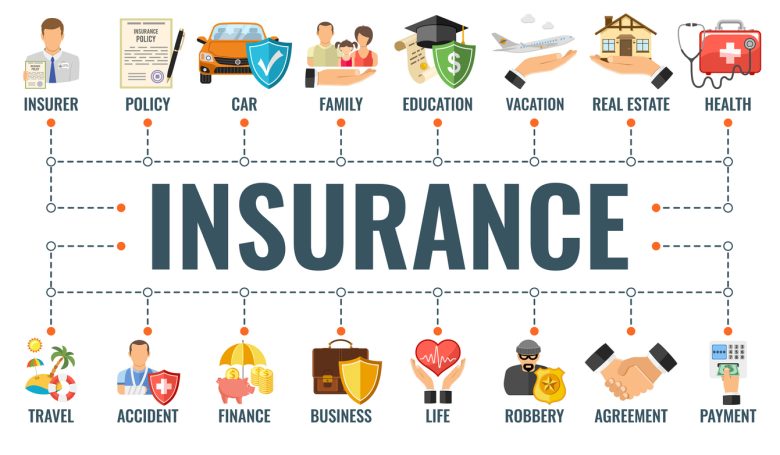Insurance policies provide financial coverage and protection, though improper use can result in heavy consequences. Fines, lawsuits, cancellation of policies, and even criminal charges await those who, intentionally or otherwise, breach any insurance terms and conditions. Most policyholders do not fully understand the negative impacts and consequences of non-compliance policies, which makes it vital to execute risk assessment. Misrepresentation and omission of relevant details constitute a breach of contract, which oftentimes results in a loss of finances and reputation.
The purpose of this article is to look deeper at the costs that come with breaking the rules and how individuals and entities can avoid these traps. Ensuring compliance with the requirements of the policies provided, full disclosure of information about legal matters, and non-violation of laws ensure that policyholders are not exposed to unnecessary risks. These rules, when adhered to, enable the smooth sailing of the policyholder along with the avoidance of conflicts that have the potential to incur monumental losses both financially and legally.
Financial Penalties and Fines:
An example of a negative effect resulting from non-compliance with an insurance policy or law would be a financial penalty. Fines are imposed by insurance companies and other governing bodies on individuals or companies who either breach the policy terms or do not observe the legal provisions within the policy scope. Depending on the policy of the insurance institution, such punitive measures may take the form of modest expenses or major fines, which may lead to detrimental impacts on the loser’s finances.
For instance, false representation through application submission or insurance claim constitutes fraud, and it is likely to attract severe punitive costs. In particular situations, even policyholders can be asked to refund the benefits they ostensibly obtained without due process (fraud). Fines are useful in the control of social order insofar as the insured system works honestly and efficiently.
Policy Cancellations and Denied Claims:
Violating insurance agreements can result in policy cancellations and claim denials, sometimes when the policyholder needs insurance the most. Insurance companies reserve the right to cancel policies in the case of fraudulent claims, misrepresentations, or failure to perform essential obligations in the contract. A policy that has been canceled can severely restrict the availability of additional coverage due to the likelihood of being labeled a high-risk individual. Also, claims made under misleading representations or the omission of important details are bound to be rejected by the insurer. This is especially severe for medical emergencies, property damage, or even liability claims, where these finances are paramount. Avoiding such difficult situations is made simple by remaining truthful and compliant with policy terms.
Legal Considerations in Disciplinary Action:
Insurance crimes involve the breaking or violation of practitioners’ insurance policies or their particular guidelines. Such violations may attract disciplinary measures and, in serious cases, prosecution. As an example, fraud perpetrated concerning an insurance policy is termed an insurance fraud crime by most states. Violent impacts such as jail time may result from the subs they violated.
Fraudulent attempts, like causing accidents and using fake names or documents for driving insurance, are rampant, which draws much attention from law enforcement. Lesser violations like not possessing compulsory insurance can lead to complex court trials and extra expenses. Besides financial implications, it may bring an unforeseen legal blindfold that can destroy one’s external image and reputation.
Higher Premiums and Added Policy Limitations:
An insurance provider can incur severe financial repercussions, such as sustaining greater premium costs and more rigid terms of coverage limit, simply by breaking the insurance contract clauses. Every policyholder has a unique history, and on assessment, the insurer determines the risk exposure from it, and a certain policyholder stands to pay more than the basic rate if he has a checkered past. For instance, an individual convicted of insurance fraud will most likely pay exorbitant prices for auto insurance shortly.
The same goes for companies found guilty of noncompliance with statutory regulations and facing hardships in accessing affordable liability insurance coverage. As a result of some violations, insurers might require the provision of greater or more stringent requirement information or even impose restrictions on the level of available coverage. These outcomes underscore the level of trust that insurers expect from insurance clients and the need to ensure that all insured persons can receive reasonable payment about the scope of risk provision without limitations.
Consequences on Credit Ratings and One’s Financial Condition:
Also, failing to comply with insurance policies and procedures can have a profoundly adverse influence on one’s credit score and financial position. Legal costs, denied claims, and unpaid fines alone can all lead to financial stress, which, in turn, makes it difficult to fulfill other obligations. In some instances, insurers notify credit bureaus of violations, which has been shown to decrease credit ratings and hinder access to future finances. Deteriorated credit can lessen the ease with which one can access loans, mortgages, and even employment in fields in which one exercises financial control. Compliance with insurance policies and policies enables individuals to mitigate risks associated with incurring financial burdens while safeguarding their standing.
How Not to Break the Rules of Insurance:
Not violating insurance rules requires a certain level of attention, honesty, and active compliance with the terms of the policy. One of the best ways to not get into trouble with insurance policies is to read and understand the policy documents. Most policyholders violate rules due to a lack of understanding or knowledge about the coverage’s limitations and requirements. Ensuring compliance starts with accuracy during the application and claims processes. Updating insurers regularly about changes in circumstances like change of address, new business openings, etc. Ensures compliance. Consulting insurance agents or legal professionals can help support and offer further direction on how to remain compliant with set regulations.
Significance of Ethical Conduct in Insurance:
Responsible conduct in the dealings of insurers, insurance providers, and policyholders builds trust and anchors the insurance industry. It helps facilitate policyholders’ trust and insured businesses. Dishonesty, non-adherence to legal prescriptions, and lack of respect towards honesty in dealings lead to a business environment that is neither fair nor allows a low rate of fraud perpetration. Policyholders, through compliance, can give life to such a system and make it sustainable for all the parties involved. As a result, policyholders become productive and able to increase the scope of service, underwriting complexities posed by the fraudulent acts, and non-compliance with the rules.
Conclusion:
Disregarding insurance policies can entail costly financial, legal, and reputational repercussions. Fines, loss of policy coverage, and potential lawsuits, coupled with policy abuse, can be extremely costly. Risk avoidance, enhanced security, and fulfillment of policy requirements can be achieved by individuals and businesses through compliant work. Compliance and ethical behavior help build a trustworthy industry that reinforces positive norms and stabilizes all groups involved.
Factors such as honesty, ignorance, and unmet industry standards pose challenges with devastating impacts on stakeholders—and such dangers can be circumvented through basic proactive strategies. A rule-abiding approach ensures sustained protection and peace of mind amidst the complex world of insurance. Following the policies sets a pathway towards maintaining leverage in this sensitive aspect of business.
FAQs:
1. What would happen if an untruthful statement about an insurance plan was made?
Such actions could lead to a policy’s termination, claim denial, and legal prosecution. Insurers possess the ability to impose penalties or recoup any undeserved rewards gotten through deceitful actions.
2. Does an overlooked rule under the set insurance policies affect credit scores?
An unpaid fine or legal fees related to insurance infractions will surely diminish one’s credit score, making borrowing from lenders or other financial institutions harder to obtain.
3. What happens if I commit insurance fraud?
Insurance fraud is a very severe offense that comes with penalties such as monetary fines, imprisonment, and even court proceedings. There is a plethora of law enforcement organizations that specialize in investigating fraudulent insurance activities.
4. What can I do to comply with my insurance policy?
To remain compliant, one must read and understand the entire scope of the policy documents and give correct information, notify the insurer of any changes, and seek professional advice when needed.
5. Does violating insurance rules increase your premiums?
Yes, there is a coalition of factors that causes a sharp increase in premium insurance and reduced coverage limits, which in turn makes the process of obtaining insurance more burdensome.




